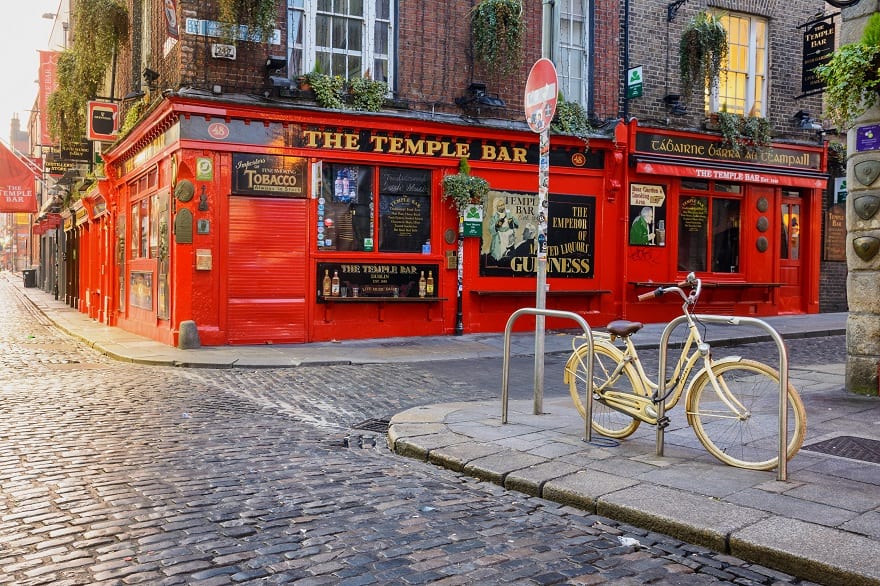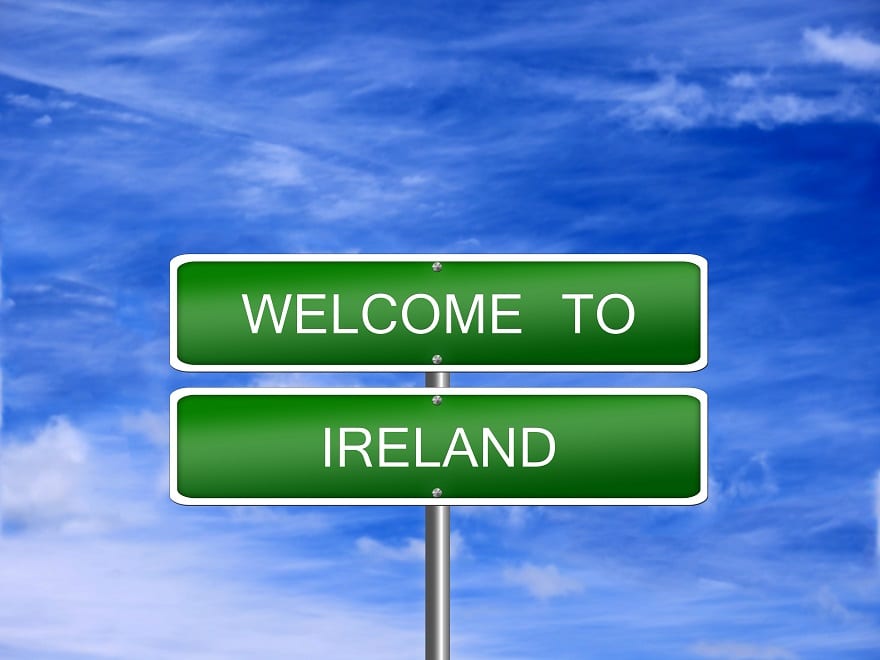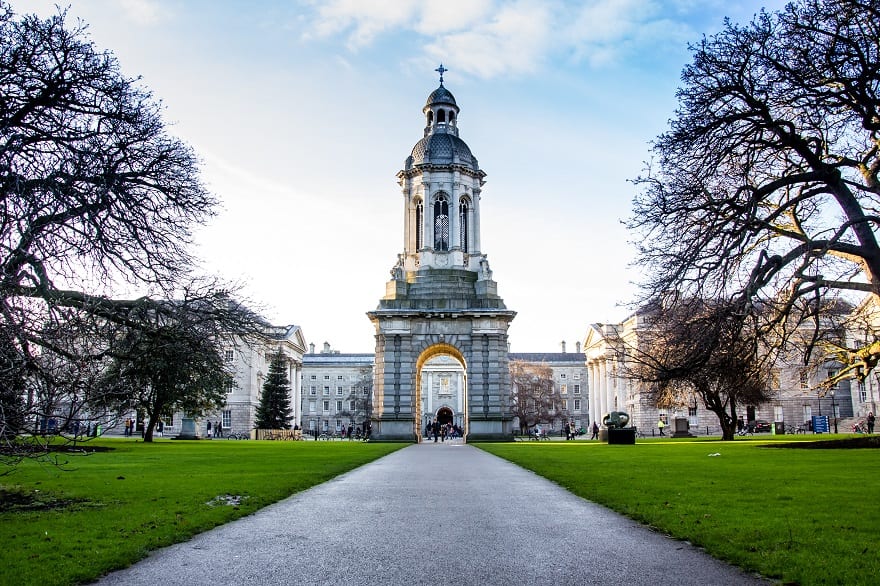Moving to Ireland: Ultimate Guide
Did you know that Ireland has the fastest growing economy in the Eurozone? This economic success story has been attracting ex-pats to the country like never before. In fact, since 1995, the number of ex-pats and migrants arriving in Ireland has nearly tripled – and it’s not just foreigners who are moving to Ireland either. While the country used to have an extraordinarily high amount of outward emigration, Irish citizens are returning home in record numbers.
What makes Ireland such an attractive country for investors and migrants alike? From visa policies to taxes to life after work, let’s look at everything that it means to be a foreigner in Ireland.
Here’s your guide to moving to Ireland.
Living / Lifestyle
What Is It Like to Live in Ireland?
For many people, life in Ireland revolves around the capital city. In fact, around 45 per cent of the population in Ireland live in and around the city of Dublin.
When it comes to new arrivals as well as long-term ex-pats, the majority call Dublin or the west coast city of Galway their home. With nearly 19 per cent of the population being foreign-born, Galway is the most international city in Ireland. Dublin, meanwhile, reports an ex-pat population of slightly over 17 per cent.
One thing that ex-pats and tourists alike love is the local culture. Irish natives pride themselves on their gift of gab and you need only pull out a stool at any local pub (alcohol optional) to find a new friend. The welcoming locals will make you feel right at home from the moment that you arrive. In fact, ex-pats in Ireland are twice as likely as the average migrant to have mainly local friends. Since most Irish people have friends and family scattered around the globe, they tend to be internationally-minded and love to meet people from abroad.

What's It Like to Live in Dublin?
Dublin is a highly international city. On the streets of the city centre, you are as likely to run into a person from Poland, the United States, Lithuania, Brazil as you are to run into a native Irish person. Expats from across the globe flock to work at the headquarters for Apple, Facebook, Google, Pfizer, Twitter, and other big names.
With such a strong job market, the competition can indeed be tough. This is particularly true when it comes to finding a place to live. The housing market is notoriously difficult. So much so, in fact, that Dublin was recently ranked as the very worst city in the world for housing. Be prepared to make some compromises either in the size or the location of your new home.
How about life in Galway?
With the high cost of living in Dublin, many working expats and foreign students find Galway to be the perfect home. Costs are a full 15 per cent lower in Galway than Dublin and the housing market is significantly less competitive.
Those interested in taking a deeper dive into the local culture will be delighted by the wider Galway region. With many native Irish speaking communities, called Gaeltacht, Galway offers a district atmosphere from Dublin.
Cost of Living
How much do you need to get by in Ireland?
Moving to Dublin can be extremely costly. Consumer prices are on par with what you would find in New York City or London. To get a general idea of the cost, experts say to plan for around €3,200 in expenses, before rent, for a family of four and an additional €2300 to €3000 per month for a three-bedroom home.
Meanwhile, a frugal single person could get by for €3000 per month, including rent if living outside of the city centre. Before relocating to Ireland, it is important to weigh the salary against the cost of living.
To calculate costs, it is crucial to look at a few different aspects. For instance, you can save on Dublin’s notoriously high rent cost by living outside of the city, but you will need to take transportation into account.
You can get a monthly transit pass for €134 that will take you around the central metro area. Areas outside of the city, however, are not serviced by regular transport and you will need to have your own transport. On average, owning a car in Ireland costs just over €10,500 per year, according to AA Ireland.
Be aware that the majority of consumer products will have a VAT (tax) of 23 per cent so things like clothing, electronics, alcohol, and household items are more expensive than you might find elsewhere.

What do basic goods and services cost in Ireland?
- A meal at the standard restaurant is likely to cost roughly (Euro) € 15-18 per person with a beer priced around € 5 and soft drinks around € 1.70 per can. A reasonable bottle of wine costs approximately € 12 and a coffee typically sets you back around €3
- At the local supermarkets a loaf of bread is priced around € 1.30, a liter of milk approximately € 0.95 and a dozen eggs roughly € 2.75.
- Public transport in Dublin (and Ireland in general) is very good. Monthly transport for commuters around the city is likely to be around € 130. Taxis start around is € 4 and then around € 1.25 per kilometer thereafter. Petrol is around € 1.30 per liter.
- Rent in Ireland is expensive especially in Dublin, typically a 2 bedroom apartment in Dublin would range from around € 1,100 – 1,500 per month. Outside the city and in other areas a 2 bedroom apartment would cost around € 700 – 1,000 per month.
- Basic utilities for an average two-bedroom apartment will be around € 80. Prepaid mobile phone charges are approximately € 0.25 per minutes and broadband Internet is roughly € 45 per month.
To give you a better idea of what to expect in terms of the cost of living in Ireland, check out the Numbeo Cost of Living comparison calculator.
Moving to Ireland
What Moving Documents are Needed For Moving to Germany?
- Copy of passport
- Packing list
- Transfer of residency 1(TOR 1) – PPS declaration document
- Express release / air waybill (AWB)
- Documentary evidence of residence abroad for at least 12 months
- Two original copies of utility bills. (Electricity bill and a bank statement will do. Must not be older than 12 months).
- Proof of residence in Ireland (2 forms)
- Copy of property lease, rental agreement, or purchase in Ireland
- Resident / work permit / letter of employment
- Travel itinerary returning to Ireland / copy of flight confirmation / copy of boarding pass
- Letter from the Irish Department of Foreign Affairs Protocol Section
- Copy of passport
- Original registration
- Original bill of lading (OBL) / air waybill (AWB)
- Copy of current insurance certificate (copy of previous policy documentation is acceptable if no current insurance is in effect)
- Bill of sale showing date of purchase and price
- Vaccination record
- Veterinary health certificate
- Pet passport
For more information on restricted and prohibited items and a more in-depth look at documentation please check the International Association of Movers.
Legal / Visas
How Do Visas In Ireland Work?
When you are moving to Ireland, your very first step is to get a visa arranged. Any visa valid for more than 90 days is a long stay or “D” visa. Here is a complete list of the options available. Click on the link to see the full details for each visa.
Always rely exclusively on the information directly provided by the Irish government. You will note that all of the websites above have the domain “.gov.ie” and it is essential to always look for this on any site that you visit. While reading info on various blogs is a great starting point, things can change at any time so it’s essential to rely on the official information. Also, be aware that the government does not authorise third-party visa agencies. Sharing your details or getting assistance from anyone other than your employer and the Irish government will only add cost and time
How to Get a Work Visa in Ireland?
The majority of expats in Ireland will arrive on an employment visa. As soon as your future employer chooses to hire you, they will start this process. Start reviewing the requirements immediately and bear in mind that this process can take upwards of two months.

Getting Irish Citizenship and Residency
For those coming from outside of the European Union, the relative ease of getting permanent residency and citizenship in Ireland is a definite perk. If you are on a Critical Skills Employment, which is common in the tech industry, you can apply for permanent residency after being in Ireland for two years. For a standard employment permit, you can apply for residency as well as citizenship after five years in the country.
For more information on citizenship and absolutely anything related to life in Ireland, visit the Citizen’s Information website. They provide invaluable resources both online and in-person to all people, immigrants and citizens alike, with everything from renting in Ireland to paying taxes.
Money & Taxes
How Much Money Do I Need to Live in Ireland?
The median household income is €45,256 in Ireland. This ranges from an average income of €34,800 in Leitrim and €32,259 in Donegal to €66,203 in wealthy Dublin suburbs like Dún Laoghaire and Rathdown. To give you a sense of what that means, the Irish median income, when adjusted for local pricing, is the 13th highest in Europe.

What about Opening a Bank Account in Ireland
Once you have an established address, opening a bank account in Ireland is relatively easy. If you already have your residency visa, you will just need a photo ID and a proof of address (typically a utility bill). If you are not a resident yet, you can open the account with a proof of address from your home country along with a proof of address in Ireland; a bank statement from your country; and a passport.
Some banks do ask for a PPS number. This is your Irish Personal Public Service Number. You can find the details for obtaining a PPS number on the government website. Do note, however, that you will also need proof of address to get this PPS number so you will need to be settled in.
Be aware that different institutes have different requirements for your proof of address. This may mean the need to provide original copies from the company. This could require you to opt-out of electronic billing and plan a month in advance. For joint accounts, you will also need to have more than one proof of address and each from different companies.
How Do Taxes Work in Ireland?
Climate & Weather
What’s the Weather like In Ireland?
Ireland has a famously rainy climate. In fact, many areas of the country see more than 250 days of rain per year. While you will regularly see grey skies all around the island, the amount of rainfall is relatively low. Rather than thunderstorms and monsoon-like weather, you will see a regular passing of drizzle.
Beyond the rain, the weather tends to be quite mild. The coldest months of the year are January and February, when you will see temperatures ranging from 4 to 7 degrees C. Meanwhile, the hottest months of the year from July to August typically have days ranging from 14 to 16 degrees C.

Buying & Renting a Home
How to Rent in Ireland
The country is often divided into two areas: Dublin and elsewhere. If you are renting elsewhere in Ireland, the process will be relatively simple. You will need to provide a copy of your ID, rental references, work references, and proof of employment. Things can be somewhat competitive in Cork and Galway, but generally, the process is fairly straightforward and quick.
If Dublin, however, it is an entirely different matter. Not only will you need to have your rental references, work references, and proof of employment, you will need to have them on-hand at every home viewing. When you are able to secure a showing in the city, be aware that it is more than likely a group viewing. There will be multiple people there in most cases and the first person to put cash in the hand of the owner (typically the equivalent of two month’s of rent) will take the place.
The further from the city and the higher your budget, the more likely you are to see less competition.

How to Find a Rental in Ireland
When you are moving to Ireland, the best plan is to arrive in the country with temporary accommodation then arrange to look at potential properties. Here are the most common places to find a home for rent:
Are you ready to seriously start looking for a place to call home in Ireland? You need our complete guide to renting in Dublin.
Healthcare
Is Healthcare Free in Ireland?
Healthcare is free in Ireland for those who can’t afford the cost of coverage. Since eligibility is entirely needs-based, less than 40 per cent of citizens have access to the free system. For those who don’t qualify for a medical card, private insurance is worth considering. It will lower the cost of every medical service. With 40 per cent of the population privately insured, Ireland has the highest percentage of private insurance holders of anywhere in Europe.
Your employer may or may not provide healthcare assistance (though healthcare perks are relatively common). In any case, it is well worth considering your option. There are four private insurance companies to choose from in Ireland: Irish Life Health, Laya Healthcare, VHI Healthcare and HSF.
For the remaining population that is unsecured, programmes like the Drugs Payment Scheme for prescription medication; the Long-Term Illness Scheme for long-term conditions; and the Maternity and Infant Care Scheme for families are a major asset.
Education
How Does Education Work in Ireland?
In Ireland, the education system consists of primary, second, third-level, and further education. Attending an education facility is required for children aged six to 16 in Ireland.
Choosing a primary school had previously been difficult for many expats, immigrants, and refugees as the Stated-funded schools are often owned by the Catholic Church and only admit Catholics. This, however, was changed by the Education (Admission to Schools) Act 2018. While older documents will say you must provide proof of baptism to be enrolled, this is not the case.
In second-level schools, you will find a junior cycle that is three years long and concluded with an optional Junior Certificate or Junior Cycle (JCPA) examination. For the senior cycle, you can choose amongst two-year or three-year options. There are a total of three options available for the senior years. Each one has a path toward a required exam.
Students who opt to take the Established Leaving Certificate do so with an eye toward attending university or college. Students who opt for the Leaving Certificate Vocational Programme tend to already have a career path in mind. Meanwhile, the Leaving Certificate Applied Programme is an option for developing self-esteem, responsibility, and learning skills.

Childcare Options In Ireland
Ireland has a wide range of childcare options. Parents who work full-time often opt for full daycare centres which can accommodate children for more than five hours of care per day.
So-called “sessional services” often offer morning or afternoon programmes where children are supervised for up to 3.5 hours per day. These operate with a wide range of options:
- Montessori care for individualised education
- Naíonraí with Irish language facilities
- Play Schools for learning classroom schools
Many parents also opt for a childminder who is able to care for up to five children under the age of six years in a facility that is typically the childminder’s home. Certain places also offer Parent and Toddler Groups, which is similar to a childminding facility but also offer parent-supervised play sessions.
In a range of places like shopping centres, you will find drop-in centres where parents can leave their kids while attending an appointment or shipping.
Final Thoughts
Moving to a new country can be a little disconcerting, and left unchecked these feelings can develop into anxiety and stress. Moving to Ireland, as we have seen, brings with it both exciting opportunities with some potential challenges. However, embracing the changes and adopting a proactive approach through the advice, tips and links we have provided sets you firmly on course to a successful relocation to Ireland.
Why not get things moving by completing our simple form, enabling international movers to start work on your moving quotation, today!








